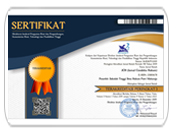FREEDOM OF SPEECH UNDER INTERNATIONAL LAW: MYANMAR'S ANTI-COUP DEMONSTRATION VIOLENCE CASE
Yordan Gunawan(1*), Muhammad Nur Rifqi Amirullah(2), Vensky Ghaniiyyu Putri Permana(3), Mohammad Hazyar Arumbinang(4)
(1) Universitas Muhammadiyah Yogyakarta
(2) Universitas Muhammadiyah Yogyakarta
(3) Universitas Muhammadiyah Yogyakarta
(4) The University of Melbourne
(*) Corresponding Author
Abstract
Keywords
Full Text:
PDFReferences
Aidi, Z. (2021) ‘E-Litigation as The Amenities for The Principle of Contante Justitie Manifestation of Civil Jurisdiction In Indonesia’, JCH (Jurnal Cendekia Hukum), 6(2), pp. 206–224.
Alunaza, H. and Toy, B. A. (2019) ‘Pengaruh Militer Dalam Sistem Politik Myanmar Terhadap Diskriminasi Etnis Rohingya Pada Tahun 2017’, Jurnal Ilmiah Hubungan Internasional, 15(1), pp. 27–39.
Annappa, N. (2021) ‘Ensuring Right to Freedom of Speech and Expression on Cyber Space as Against State Intervention-Indian Experience’, Revista Direitos Fundamentais & Democracia, 26(1), pp. 119–134.
Cuddy, A. (2021) ‘Myanmar coup: What is happening and why?’, BBC news. Available at: https://www.bbc.com/news/world-asia-55902070.
Dolan, T. and Gray, S. (2014) Media and Conflict in Myanmar:. United States Institute of Peace.
Firdausi, K. (2021) ‘Study of Contract Object in Multi-Service Financing Using Ijarah in Islamic Bank’, JCH (Jurnal Cendekia Hukum), 6(2), pp. 225–238.
Gunawan, Y. (2021) Hukum Internasional: Sebuah Pendekatan Modern, Yogyakarta, LP3M UMY.
Herawati, D. M. and Nugroho, A. Y. (2021) ‘Myanmar: Surga Yang Hilang’, Promedia (Public Relation Dan Media Komunikasi), 7(1).
Iqbal, F. M. (2021) ‘Kudeta Militer Myanmar dalam Perspektif Hukum Internasional’, Jurnal Dialektika Hukum, 3(1), pp. 113–129.
Min, W. (2010) ‘Looking inside the Burmese military’, in Burma or Myanmar? The Struggle for National Identity. World Scientific, pp. 155–184.
Mudjiyanto, B. (2019) ‘Kebebasan Berekspresi dan Hoaks’, Promedia (Public Relation dan Media Komunikasi), 5(1).
Putri, A. et al. (2021) ‘Dampak Prinsip-Prinsip Dasar ASEAN Terhadap Pola Kerjasama ASEAN Menghadapi Krisis Kudeta Myanmar’, Nation State: Journal of International Studies, 4(1), pp. 117–139.
Rado, R. H. and Badilla, N. W. Y. (2021) ‘THE POLICY OF OVERCROWDING MANAGEMENT OF JAIL IN INDONESIA DURING COVID-19 PANDEMIC’, JCH (Jurnal Cendekia Hukum), 6(2), pp. 289–301.
Rosana, E. (2016) ‘Negara demokrasi dan hak asasi manusia’, Jurnal Tapis: Jurnal Teropong Aspirasi Politik Islam, 12(1), pp. 37–53.
Saputra, R. P., Fahmi, F. and Triana, Y. (2021) ‘THE SOCIAL AND ENVIROMENT RESPONSIBILITY OF PLANTATION COMPANY AND OIL PALM MANUFACTURER IN SIAK DISTRICT’, JCH (Jurnal Cendekia Hukum), 6(2), pp. 252–269.
Setiawan, A. (2015) ‘Diplomatic Dilemma dan Standar Ganda Politik Amerika Serikat Terhadap Konflik Sipil-Militer Mesir Tahun 2013’, Jurnal Hubungan Internasional, 4(1), pp. 67–77.
Shecter, S. P. (2007) Freedom of Speech in the Changining World of Internet Domain Name Registration and Dispute Resolution: How the Increasing Influence of National Governments in Domain Name Policy Threatens Free Speech on the Internet, bepress Legal Series. bepress.
Susanto, M. I. (2019) ‘Kedudukan Hukum People Power dan Relevansinya dengan Hak Kebebasan Berpendapat di Indonesia’, Volksgeist: Jurnal Ilmu Hukum dan Konstitusi, 2(2), pp. 225–237.
UNESCO (2013) TOOLKIT Kebebasan Berekspresi Bagi Aktivis Informasi. The United Nations Educational, Scientific and Cultural Organization (UNESCO) 7, place de Fontenoy, 75352 Paris 07 SP, France.
Wells, T. (2018) ‘Democratic ‘freedom’in Myanmar’, Asian Journal of Political Science, 26(1), pp. 1–15.
Widyawati, A. (2008) ‘Kajian Hukum Internasional Terhadap HAM’, Jurnal Pandecta, 2(2).
DOI: http://doi.org/10.33760/jch.v7i1.414
Refbacks
- There are currently no refbacks.
Copyright (c) 2021 JCH (Jurnal Cendekia Hukum)

This work is licensed under a Creative Commons Attribution-ShareAlike 4.0 International License.
Published by STIH Putri Maharaja Payakumbuh
Indexing by

















